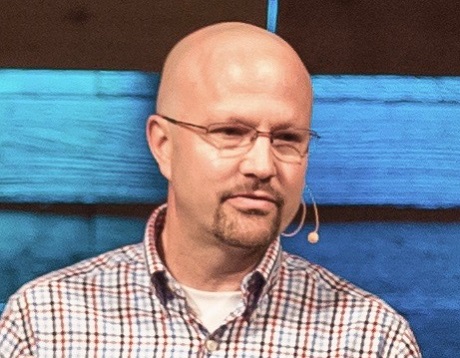- Calls to this hotline are currently being directed to Within Health or Eating Disorder Solutions
- Representatives are standing by 24/7 to help answer your questions
- All calls are confidential and HIPAA compliant
- There is no obligation or cost to call
- Eating Disorder Hope does not receive any commissions or fees dependent upon which provider you select
- Additional treatment providers are located on our directory or samhsa.gov
How Does a Day in Eating Disorder Treatment Look and Feel?

Travis Stewart, LPC, NCC – Director of Business Development and Marketing, McCallum Place
If you are considering going to a treatment center to recover from an eating disorder, it is natural to want to get a better understanding of how your time will be spent. While every day and every treatment center has unique features, there are a number of common experiences you can expect to have as you recover from the eating disorder behaviors that have become problematic in your life.
SUPPORTED MEALS AND SNACKS
Individuals who receive treatment for an eating disorder are experiencing anxiety, distress, fear or a loss of control when it comes to food. Naturally, in a treatment setting, you can expect a great deal of support around meal and snack times. This support is provided by staff who sit with you while you restore a more balanced relationship with food.
INDIVIDUAL APPOINTMENTS
While in treatment, you will meet with members of your treatment team. This includes:
- Medical providers such as family medicine doctors and psychiatrists who review your mental and physical health.
- Registered Dietitians who assist you with your meal planning and provide education and support around nourishing your body, addressing fear foods and answering nutritional questions.
- Psychologists and Therapists who provide counseling, feedback, and support as you explore your experiences with food, body image, family, relationships, thoughts, and feelings.
- Some treatment centers such as McCallum Place have Strength and Conditioning Coaches who assess your physical fitness and coach you as you restore more joy in your physical fitness and help with the obsessive thoughts around exercise.
GROUP THERAPY
In addition to doing therapy in an individual setting, you will also participate in a wide variety of groups. These may include:
- Process Groups to discuss your experiences in treatment, relationships with others, your personal story, and assignments given by your therapist to talk about in a group setting.
- Art Therapy groups allow for exploring and expressing ideas in a non-verbal way through a wide variety of artistic expressions.
- Expressive Groups can take on many different forms including movement, role-playing, and improvisational groups.
- Psychoeducational groups provide education and support from a therapist or dietitian. These can be based on a specific type of therapy such as Dialectical Behavior Therapy (DBT), or they may be different each day depending on the group leader.
- Other groups may include yoga, spirituality, relapse prevention, family dynamics, and life stories.
ACTIVITIES
Depending on the treatment center, you may participate in activities designed to help you connect with others and experience change outside of a traditional therapy setting. These might include fitness outings, meal outings, equine therapy (with horses), low-ropes, team-building, and cooking experientials.
SCHOOL
For adolescents, treatment settings usually include classroom/study time so that you will be able to keep up with your school work and academic requirements. Many treatment centers have teachers on staff to provide tutoring and collaboration with your school.
FREE TIME

Depending on the approach of the particular treatment center, free time is when you have access to your mobile phones, computers, TV or calling family and friends. Often, these activities and privileges are tied in with the progress you are making in treatment (in other words, the more you collaborate with the treatment team, the more privileges you have).
SAMPLE DAY
Here is what a typical day might look like:
6:30 am – Medications/Check-in with Staff
7:15 am – Breakfast
8:30 am – Home Group
9:30 am – Individual Appointments
10:40 – Snack
11:20 am – Educational Group
12:30 pm – Lunch
2:00 pm – Group/Activity/ School
3:30 pm – Snack
4:15 pm – Individual Appointments
6:00 pm – Dinner
7:30 pm – Free time
10:15 pm – Lights out
EACH DAY IS DIFFERENT
The schedule above is only a sample, and the schedule will be different every day and vary from center to center. If you are considering treatment and have more specific questions about groups, school, fitness or family involvement be sure to ask the treatment center directly about their policies and approaches.
About the Sponsor:
McCallum Place is a nationally recognized eating disorder treatment center where professionals can help guide you through the process of treatment and recovery every step of the way.
About the Author:

Travis Stewart, LPC, NCC, MATS is the Director of Marketing & Business Development at McCallum Place Eating Disorder Centers. He has worked in the field of eating disorders since 2003 in both clinical and marketing roles at every level of care. He brings a unique blend of clinical expertise and communication skills to his role with McCallum Place. He is passionate about connecting people to resources and experiences that are transformative and healing.
Travis graduated from the University of Nebraska in 1991 with a degree in advertising and immediately began working with the international ministry of The Navigators, mentoring students. After 8 years, his desire to better understand how people change and heal led to obtaining a Master of Arts in Counseling (2001) and a Master of Arts in Theological Studies (2003) from Covenant Seminary in St. Louis, Missouri where he now lives with his family.
The opinions and views of our guest contributors are shared to provide a broad perspective of eating disorders. These are not necessarily the views of Eating Disorder Hope but an effort to offer a discussion of various issues by different concerned individuals.
We at Eating Disorder Hope understand that eating disorders result from a combination of environmental and genetic factors. If you or a loved one are suffering from an eating disorder, please know that there is hope for you, and seek immediate professional help.
Published on February 11, 2019.
Reviewed & Approved on April 12, 2024, by Baxter Ekern, MBA
Published on EatingDisorderHope.com
